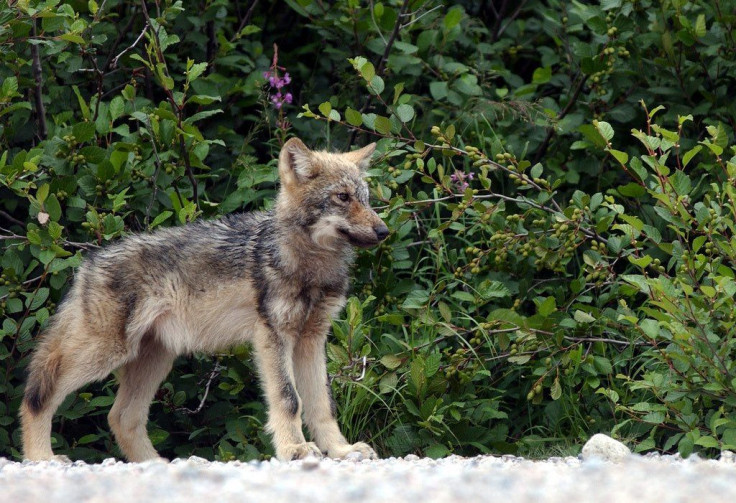Why Wolf Puppies Playing Fetch Is Surprising To Science

KEY POINTS
- Unlike wolves, dogs have the ability to read and respond to social cues
- Scientists believe this was a result of thorough human domestication
- Researchers of a new study were surprised when wolf puppies were able to play fetch
- This shows that dog ancestors already had such traits even before they were domesticated
It has been hypothesized that dogs’ abilities to understand human cues only arose after they were already domesticated at least 15,000 years ago. However, a team of researchers unexpectedly found that dogs’ ancestors may have had some form of ability, thanks to a game of fetch with wolf puppies.
Unexpected Discovery
The researchers of a new study, published in iScience, did not intend to see whether wolves could play fetch. Instead, they wanted to learn how wolves socialize with each other.
For their study, the researchers took three litters of wolf puppies over the course of three years and took shifts to make sure that the wolf puppies had human contact 24 hours a day. This is because unlike dogs, wolves are not quite comfortable around people so it takes a lot of socialization to encourage better interaction.
However, the researchers eventually noticed that some of the wolf puppies would retrieve tennis balls that were thrown across the room. To see whether the puppies do have the ability to play fetch, the eight-week-old puppies were taken to a large empty room alone with a human they had never met before. Once the puppy and the stranger were alone, the stranger threw a tennis ball to see whether the puppy would go after it.
The puppies in the first two litters all ignored the ball, and so did most of the puppies in the third litter. However, two puppies called Elvis and Lemmy fetched and returned the ball twice in response to the stranger’s social cues, while a puppy named Sting even returned the ball all three times that it was thrown.
This was surprising, not just because the wolf puppies appeared to fetch and return the ball for a stranger, but because of the fact that they read and responded to human social cues at all.
Road To Domestication
Even though only a few puppies expressed the behavior, the fact that they showed it at all supports the idea that the traits that humans associate with dogs, including playfulness, were actually already present in their ancestors. Over time, those traits were intensified by the humans who favored the puppies that had those traits, leading to the eventual domestication of dogs.
“We connect with our dogs by playing with them,” study author Christina Hansen Wheat said. “If ancient humans were able to form a similar connection with some wolves, it may have started them on the path to domestication,” she went on.
This means that it is possible that at least some form of the traits that we see in domesticated animals are also present in their wild relatives. After all, the study showed that the behavior is present in at least some wolves.
© Copyright IBTimes 2025. All rights reserved.






















